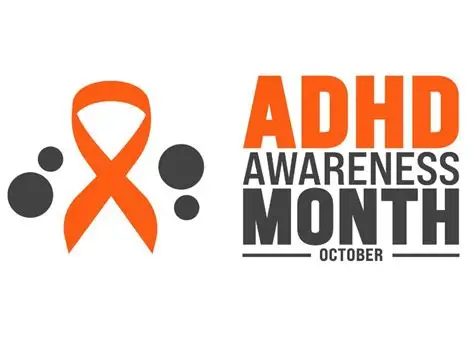ADHD Awareness Month 1 – 31 October 2025

October marks ADHD Empowerment Month, a dedicated time to increase understanding, acceptance, and support for individuals with Attention Deficit Hyperactivity Disorder (ADHD). This month-long observance is crucial for shedding light on the realities of living with ADHD, a condition that affects millions of people worldwide, including many in the UK.
ADHD Empowerment Month aims to educate the public, dispel common myths, and promote a more inclusive society where neurodiversity is recognised and celebrated. By raising awareness, we can foster better support systems, improve access to diagnosis and treatment, and enhance the overall quality of life for those with ADHD and their families. The theme for ADHD Awareness Month 2025 is “Awareness is Key!”
- In the UK, over 2.5 million adults are living with ADHD. For these individuals, ADHD is a very real part of daily life, affecting their careers, relationships, and even how they view themselves.
- Yet most adults don’t realise that ADHD could be behind the persistent challenges they face. In fact, more than 80% of UK adults with ADHD remain undiagnosed and untreated.
What Is ADHD?
ADHD stands for “Attention Deficit Hyperactivity Disorder.” It is a neurodevelopmental disorder and can be classified as an invisible disability. Some people may not consider it a disability, as they might find that their ADHD doesn’t impact their lives to such an extent that they find it disabling. Because ADHD exists on a spectrum, people with ADHD experience it in very different ways.
There are three different types of ADHD. They are:
- Hyperactive-Impulsive Type
- This type is often linked to the more outward signs of ADHD. In adults, hyperactivity can be more subtle than in children.
- Common symptoms include:
- Constant restlessness
- Fidgeting
- Difficulty sitting still
- Excessive talking
- Trouble waiting for their turn
- Impulsive decision-making
- Inattentive;
- Adults with inattentive-type ADHD often struggle with focus, organisation, planning, and memory. This may include forgetting deadlines or appointments, difficulty concentrating, and frequently misplacing items.
- They might still experience some hyperactivity or impulsivity. That said, difficulties with focus and organisation tend to be the most noticeable.
- This type of ADHD is often missed, especially if adults have learned ways to cope or hide their struggles.
- Combination;
- Many adults experience a combination of inattentive and hyperactive-impulsive symptoms. This is known as combined type ADHD.
- They often have trouble paying attention and staying organised. They may also feel restless and act without thinking.
- Challenges in Daily Life
- Think of daily life with ADHD as an iceberg. The small visible tip reflects the struggles others can easily notice, but many more remain hidden beneath the surface.
- These unseen challenges are often harder for those around you to recognise, and at times, you might not even realise that they are linked to ADHD.
- Here are some common challenges of ADHD:
- Work or academic challenges: Procrastinating, missing deadlines, or getting distracted can affect performance.
- Relationship hurdles: Forgetfulness, impulsive speech, and mood swings may strain friendships and relationships.
- Emotional struggles: Difficulty handling frustration, stress, or anger can cause mood swings or feeling burned out.
- Poor sleep and mood: Problems with falling and staying asleep can further affect focus, mood, and motivation.
